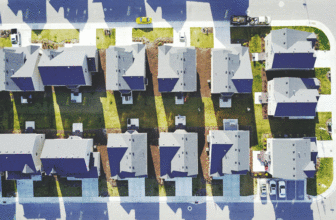
Whether you’re planning a major move to a completely new area hundreds of miles away or simply moving to a bigger or more suitable property in your own town, every move comes with its own sets of challenges and problems to overcome. From the moment you know the move is on the cards, it’s time to start planning and preparing to make sure your move goes according to the plan.
Here are some top tips for each stage of the process to ensure your move is a smooth and hassle free process.
Planning to Move
Before you start anything, you need to make an overall plan for how you will get your belongings moved from your old home to your new one. Start by considering the following questions:
- Will everything fit in a large removal lorry, or will you move in stages?
- How much is your moving budget in total?
- Will you try to move everything, or will you put some items in storage for a while?
- Do you have any specialist items to move, such as pianos, animals, antiques or large artworks?
- Who will help with the move?
- What will you do with the kids / cats / dogs on moving day?
Once you have the answers to these questions, starting to plan your move will be easier because you will have laid a framework for the process involved. Don’t overlook the benefits of using self storage to house some of your belongings through the move. This can mean you can move particularly high value (sentimental as well as monetary) items, awkward pieces or just bulky things like sports equipment and garden tools into the new area, leaving less to rush into the moving van on the actual day. Whether you live in Birmingham or Bath, self storage solutions are never very far away, so use this extra space to take the pressure off your move.
Packing for the Move
The key with packing is that it’s never too early to start. Be ruthless with throwing out things you no longer need, as moving these will not only add to the number of boxes you need to shift, but will also make more clutter at the new house for you to try and store. Here are some tips for packing your stuff safely and efficiently for your move.
- Start at the top of the house and work down
- Use good quality, sturdy packing boxes
- Pack heavy items at the bottom of boxes
- Fill boxes to the top, but don’t make them too heavy
- If a box is getting heavy, pack it out to the brim with lightweight cushions, pillows or duvets
- Try to clear an entire room and use this to store packed boxes in
- Have a defined system for labelling and accounting for boxes and their contents
- Keep overnight items for each family member to one side, and take these in a ‘lifesaver’ box with you in the car on the day of the move
Whether you are planning to do the move yourself or to use a removal company, being prepared is the key to a smooth and stress free move. Don’t leave too many ‘last minute’ jobs, as these take more time than you will expect and will make everything more of a rush and a panic on the day.
Moving Day
On the day of the move there will be a lot of coming and going, and no doubt not every aspect will go perfectly to plan. Keep calm and don’t forget to stop for a drink and a snack from time to time to keep your energy levels up. Here are some tips that should help:
- Keep all important bits of paper safe in your handbag or a file, along with things like mobile phones, chargers, keys and money
- Give the moving company a map and written address for the house you are going to, and if you have an inventory give them a copy of this too
- Before the moving company arrive, dismantle any furniture that needs to come apart for the move yourself, as this will save a lot of time
- Organise someone to look after your kids / cats / dogs during the move. Children will be keen to ‘help’, but it is not a safe environment for them, and animals will be upset by the disruption and could run away.
- Do a final check of every cupboard, shelf, room and drawer before you go to make sure you’re not leaving something important behind. Take meter readings as you leave and then switch everything off at the mains
Without a proper plan the move can go drastically wrong, costing you a lot of time and money and adding considerably to your stress levels. When you have the basics chalked out, you have a route map to work on and things become a lot smoother. However, one should always remember that there can always be some unforeseen circumstances that can create problems. Here, the key is not to panic and think with a cool, rational mind to find the best solution to the problem.
Once you arrive at your new house, don’t try to get everything set up straight away. Unpack the essentials, such as somewhere to sit, the box with the kettle and coffee in and the loo roll, and take some time to relax! The rest would follow. If your packing has been done in an efficient way, unpacking shouldn’t be much of a hassle.
Once you’re done with the basics, don’t start with the heavier stuff. Get rid of the boxes first while you have space as later the furniture would take up the space and make moving around a lot more difficult. Call a few family members and friends to help you out, put the kids at work and you’ll have most of the stuff sorted before you know!




